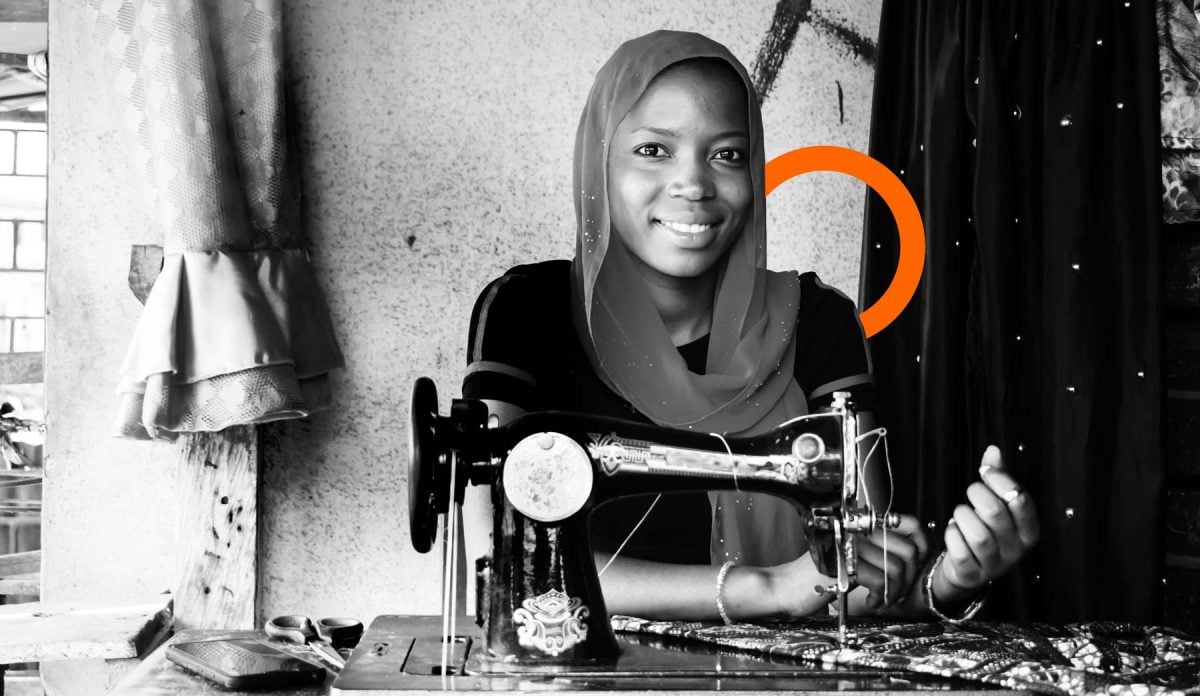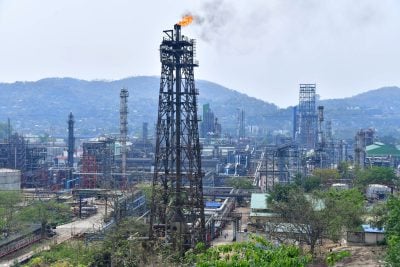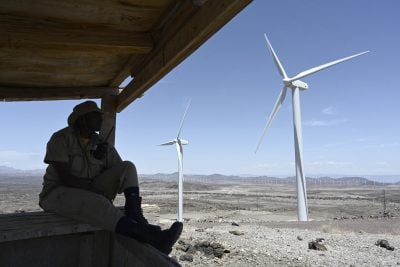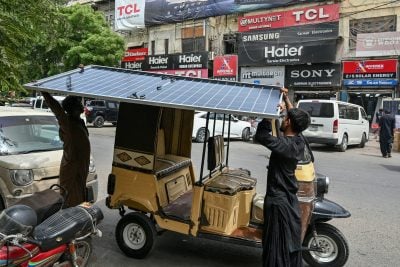The Covid-19 epidemic has delayed power projects and thrown future spending plans into doubt across Africa. But those working in the sector say continuing to pursue electricity access goals and the transition to cleaner energy are not just essential to reach climate change goals, they will also make the continent more resilient to similar shocks in the future.
The health impact of the Covid-19 pandemic has been uneven across Africa. The virus has generally spread faster in industrialised, densely populated centres than rural areas, while some countries were better able to contain its spread than others. The relative youth of Africans may also have helped curtail the force of a pandemic which has tended to hit older people harder.
But the economic impact will be severe across the continent and will continue to be felt for years. The severe impact of Covid-19 on developed countries means the supply chains feeding material and staff to African projects have been severely interrupted. Meanwhile, financial resources that had been destined for major infrastructure developments may now be redirected towards healthcare or shoring up black holes in government budgets.
Cash-strapped foreign investors may become more risk averse and the cost of borrowing at the state level may go up. Credit ratings agencies have already downgraded the debt of some of the countries most affected by the pandemic, such as South Africa.
The view from those involved in the energy sector is that the goal of providing electricity access to all Africans as fast as possible should not be sacrificed in the aftermath of the pandemic. Indeed, they argue, greater electricity access should be regarded not as a cost, but as a major part of the solution, by making African communities more resilient, more financially secure and better able to take advantage of modern healthcare services in the future. Rural healthcare centres may be able to obtain ventilators to save lives during the pandemic, but they are worthless without a reliable electricity supply, for example.
Energy access saves lives
Damilola Ogunbiyi, the recently appointed chief executive of SEforAll and chair of the 2020 Africa Energy Forum is better placed than most to assess the outlook. The organisation works with governments, the private sector and civil society to drive action toward achieving the UN’s Sustainable Development Goal 7 (SDG7), which calls for universal access to sustainable energy by 2030, as well as the objectives if the Paris Agreement climate change agreement. Ogunbiyi is also the UN Secretary-General’s Special Representative for Sustainable Energy for All.
“We’re seeing how a pandemic puts a strain on every part of society as Covid-19 cases grow. However, to power a response to the pandemic, access to sufficient, uninterrupted, reliable electricity is critical to protect the most vulnerable. Energy access quite literally saves lives and why we need to deploy solutions to the most at risk quickly,” she tells us.
Ogunbiyi believes decentralised, off-grid renewable energy answers this challenge for many countries and should be at the heart of Covid-19 response plans for those countries with large access gaps.
“By investing into clean and affordable energy sources, they can help prepare for a more sustainable, resilient economic recovery. This will allow countries to recover better and create a whole-economy approach to ensure universal sustainable energy access – in turn helping place the global economy on a trajectory in line with the Paris Climate Agreement and Sustainable Development Goals,” she says.
That investment will be badly needed, especially in the nascent off-grid solar sector, where the effects of the pandemic are jeopardising the ability of people in fragile rural economies to pay for services and equipment. That, in turn, is threatening the survival of companies – often small and with limited financial clout – that have sprung up to provide these services.
Ghana has been among the countries to put in place temporary electricity subsidies to help the poorest through the crisis, but paying power bills is likely to remain a struggle for many Africans for some time.
Another potential negative effect of the pandemic for rural Africans whose livelihoods have been hit could be a move back to using open fires or inefficient stoves for cooking, if they cannot afford to buy cooking fuel. This not only carries health risks in itself, but the weakening of the respiratory system caused by smoke inhalation could potentially also weaken resistance to the effects of Covid-19.
Developers see market resilience
Grid-scale power projects have also felt the effects of the pandemic, with many essentially being mothballed if they were dependent on imported materials and skilled workers to make headway. However, those investing in the energy sector are optimistic that the power sector is resilient enough to bounce back, even if project delays and reduced order books are likely to remain challenges over the next few months.
Chris Antonopoulos, Chief Executive of Lekela Power, the Africa-focused grid-scale wind farm builder, is cautiously optimistic over the speed of recovery.
“There is one school of thought that says projects could be delayed because priorities have changed, so money will go elsewhere, leading to a shortage of capital. However, in Africa, there has always been money available for good renewable projects. It was the quality of the projects that delayed them or made them unfinanceable, not the capital available,” he says.
Lekela has all but completed construction of the 158.7 MW Parc Eolien Taiba N’Diaye in Senegal, but getting the final capacity online has had to wait for the effects of the pandemic and the resulting travel restrictions to ease. Wind power is new to Senegal, so expertise has to be imported at this stage.
Antonopoulos, talking in May, said he expected the Senegalese project and two South African wind projects – held up by construction site lockdowns in South Africa – to be fully operational by the end of 2020, with only a small delay.
Vangelis Kamaris, Chief Executive of power project developer METKA West Africa, also sounded a positive note.
“There will inevitably be some disruption, but not long-term disruption. We see African economies rebounding in 2021. I think most of the interest in the region – and there is a lot of interest – will be back in place, and prospects remain positive in the long run,” he said
METKA is developing a wide range of projects in West Africa, from larger-scale gas-fired plants in Ghana to small-scale solar projects in Nigeria.
Nick O’Donohoe, Chief Executive of CDC, the UK development finance institution that invests in power projects, warned of potential payment problems for generating companies reliant on income from government-owned grid operators that in turn are experiencing a drop in revenues from consumers.
“Some countries already had an issue with this ‘circular’ debt, and that is only going to get worse with Covid-19, partly because power consumers will find it more difficult to pay and partly because governments will have other priorities in terms of health and so on,” he said.
UK-based temporary power specialist Aggreko has somewhat different challenges. Much of its work providing power for events such as sports events and conferences dried up with the pandemic lockdown. The company was due to have provided power for the postponed Tokyo 2020 Olympics.
The events business in Africa has suffered as it has elsewhere. However, Aggreko has also been picking up business among mining firms in Africa to provide hybrid power solutions for facilities often located well off grid and which are keen to reduce dependency on thermal generating power.
“The big question for Aggreko is events because it’s difficult to know when public events are going to start to be allowed again. But people still need power, and the mining sector is generally still operating. We are signing a few significant deals, just not as many as we normally would. But we’ll survive,” John Lewis, Aggreko’s Managing Director, Africa, said.
The rationale for renewables
It remains to be seen whether optimism over what follows the pandemic is justified, but there seems little reason for African nations to back down on efforts to improve their energy independence, while seeking to switch to clean energy at the same time.
This is highlighted by one knock-on effect of the pandemic: global oil price volatility. Psychic powers would be an asset in predicting what the oil price will be in a year’s time, so the perennial challenges faced by African countries in financing fuel imports, or in calculating their likely impact on spending are not going to get any easier.
Oil products, nearly all imported, account for 15% of Sub-Saharan electricity generation, either in oil-fired power generation or in diesel back up generators. In particular, the region’s reliance on diesel generators to keep the lights on remains an acute problem.
Around 40 TWh of the region’s power, or 8% of total generation, came from 40 GW of back-up generators in 2018, according to the International Energy Agency (IEA). Nigeria accounted for 18 TWh of that from some 9 GW of generator capacity.
This underscores the rationale for African governments to fully invest in an energy transition towards a power mix based on renewable energy, backed up, where necessary by natural gas, the cleanest of the fossil fuels.
Renewable energy provides a clean and increasingly cheap way to cut down on fossil fuel imports – or for African oil and gas producers to garner extra revenue by allowing them to export hydrocarbons at global prices, rather burning them at home.
As the IEA said in its special report on Africa, published last November: “Africa stands on the cusp of a unique opportunity: the possibility of becoming the first continent to develop its economy primarily by using energy efficiency, renewables and natural gas – all of which offer huge untapped potential and economic benefits.”
Untapped potential
That “untapped potential” is why investors still believe the African power sector can thrive. The IEA estimates that if the continent adopts “policies needed to develop the continent’s energy sector in a way that allows economies to grow strongly, sustainably and inclusively” – its so-called Africa Case scenario – electricity demand could rise more than threefold by 2040.
Much of that demand increase is likely to come from less mature energy markets beyond the North Africa region and South Africa, which between them accounted for more than 70% of an estimated 700 TWh of demand in 2019. Even if governments proceed on the basis of what they have already said they will do, demand is set to more than double in the next two decades.
Solar energy is Africa’s ubiquitous power source and is already playing a key part in the transition. Africa’s installed solar photovoltaic capacity grew to 6.37 GW in 2019, more than double the figure for 2016, according to International Renewable Energy Agency data. But that still only amounts to less than 2% of global capacity, so with costs falling, the sector is ripe for expansion. The IEA reckons an average 15 GW a year of new solar PV capacity could come online between now and 2040. Wind capacity is also likely to increase in regions where there are enough wind resources – there is room for substantial growth in South Africa, as well as the East and West Africa regions.
Foot on the gas
Africa is also well positioned to provide its own gas feedstock for the thermal power stations likely to be needed to provide baseload power until large-scale energy storage to complement renewables becomes more widely affordable. North Africa is already doing that, with more than half of its energy needs coming from natural gas, according to the IEA.
By contrast, gas accounts for only 5% of the Sub-Saharan African energy mix. However, the region is in a position to boost that share from its own resources. Africa as a whole played host to more than 40% of global gas discoveries in 2011-18 – mainly in Mozambique, Tanzania, Egypt, Senegal, Mauritania and South Africa.
However, the extent to which those gas reserves can be converted into production and then domestic power generation remains to be seen and will depend as much on global market forces as the will of African governments.
Mozambique, Senegal and Mauritania have already made significant headway in exploiting their offshore gas reserves, some of which will go to their local markets. However, they will be exporting most of the gas to lucrative international markets when production starts within the next couple of years, because that’s the only way the developers of these multi-billion-dollar projects can recoup their upfront expenditure in a short enough time to keep their investors happy.
The impact of the Covid-19 pandemic on project timetables and world hydrocarbons prices – which sank in early 2020 due to global over-supply due the drop in demand – means there is now a question mark over investment in future gas development in Africa (and the rest of the world), which could put a cap on home-produced African supply.
Want to continue reading? Subscribe today.
You've read all your free articles for this month! Subscribe now to enjoy full access to our content.
Digital Monthly
£8.00 / month
Receive full unlimited access to our articles, opinions, podcasts and more.
Digital Yearly
£70.00 / year
Our best value offer - save £26 and gain access to all of our digital content for an entire year!
 Sign in with Google
Sign in with Google 



